It takes some deep work to make me anti-immigration. I figure people should have the ability to change countries: my mother did and so did all my ancestors, often multiple times.
But Canada’s managed it, and if I lived in Australia or Britain I’d feel the same way.
Let’s start with Canada
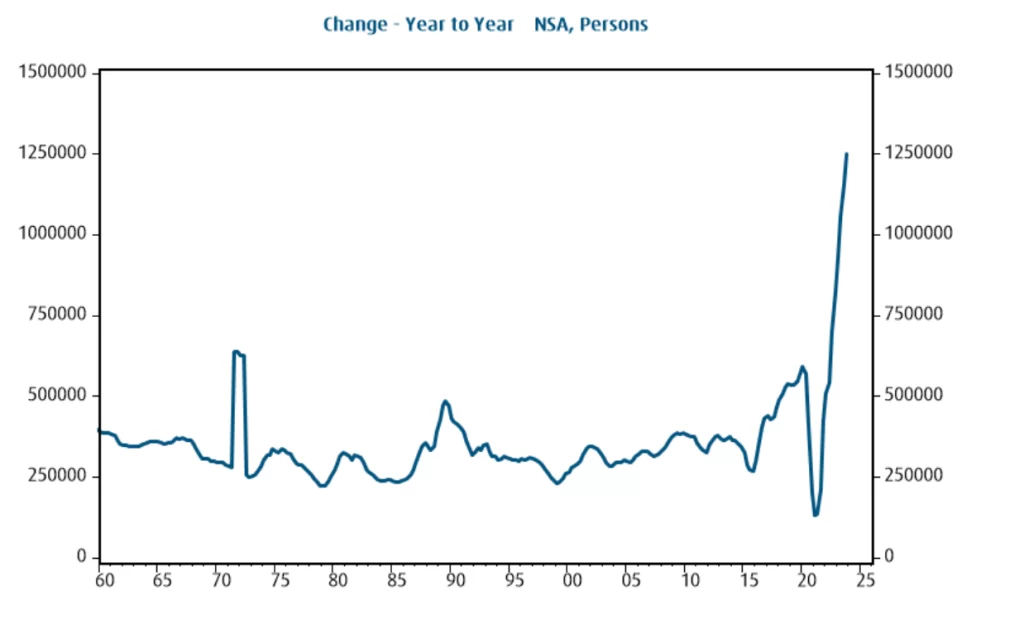
Yowsa! Something happened there, didn’t it?
A lot of people died during Covid. A lot of people were disabled due to Covid. That put upward pressure on wages and in a neoliberal economy, we can’t have that.
So Canada’s government decided to let in a flood of immigrants.
Result? Well, lower wages than otherwise, and…
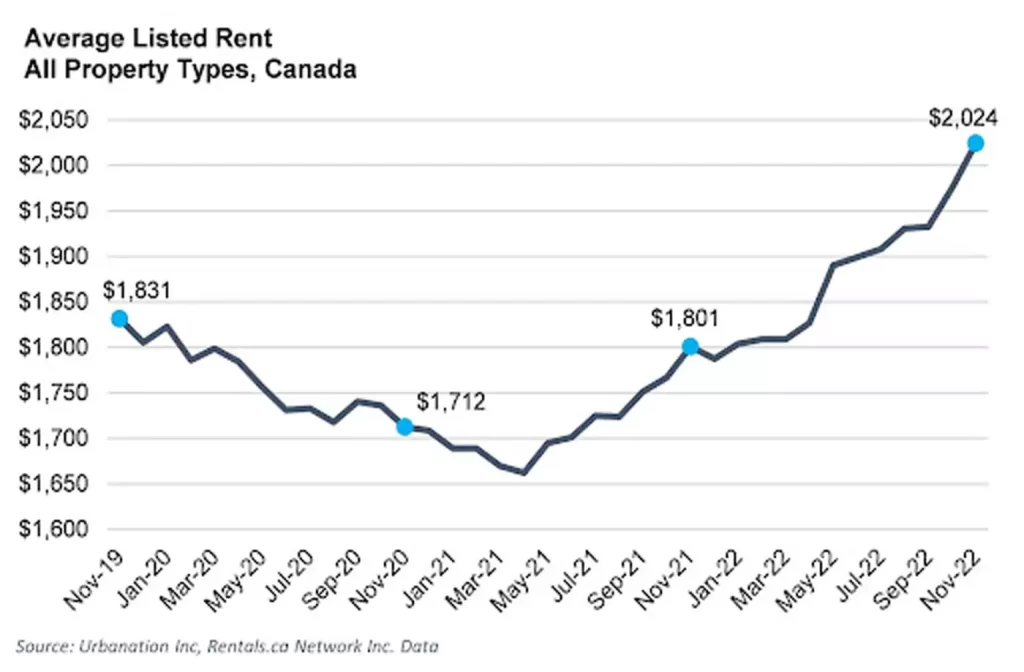
Yeeha! One of Canada’s dirty secrets is that we have more homeless people per capita than California, with a lot worse climate.
And it isn’t just immigration:
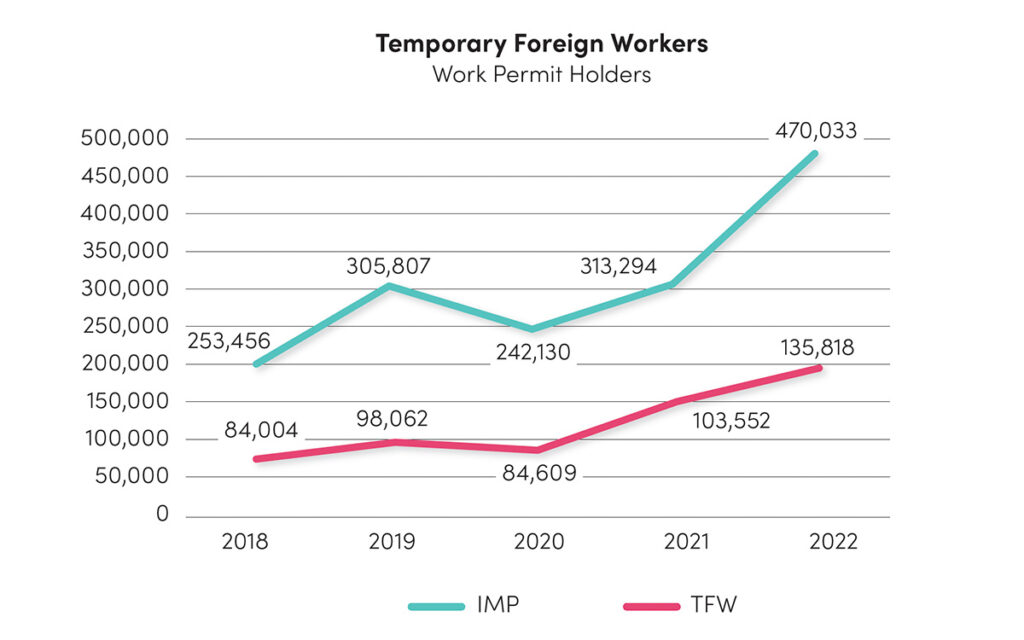
Temporary workers, because we sure wouldn’t want to use Canadians or train them.
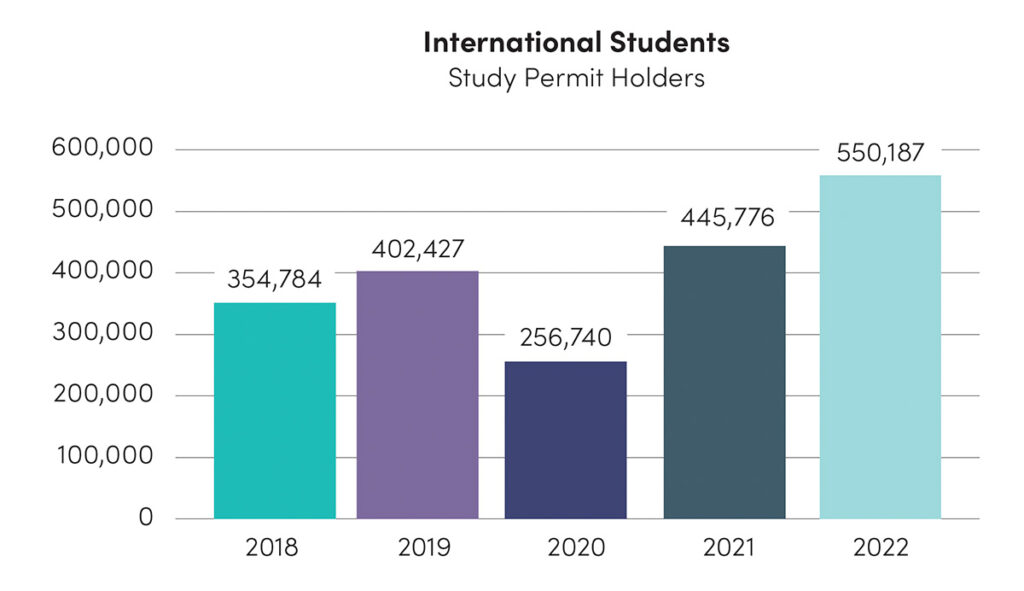
And hey, let’s pile on the pain with even more international students, who compete for housing too!
This is, obviously, deliberate policy. It’s bad for people who are already here, and immigrants are less thrilled than you might think, leading to record numbers of reverse immigration (immigrants going back home after finding out Canada isn’t the promised land.)
Australia’s the same:
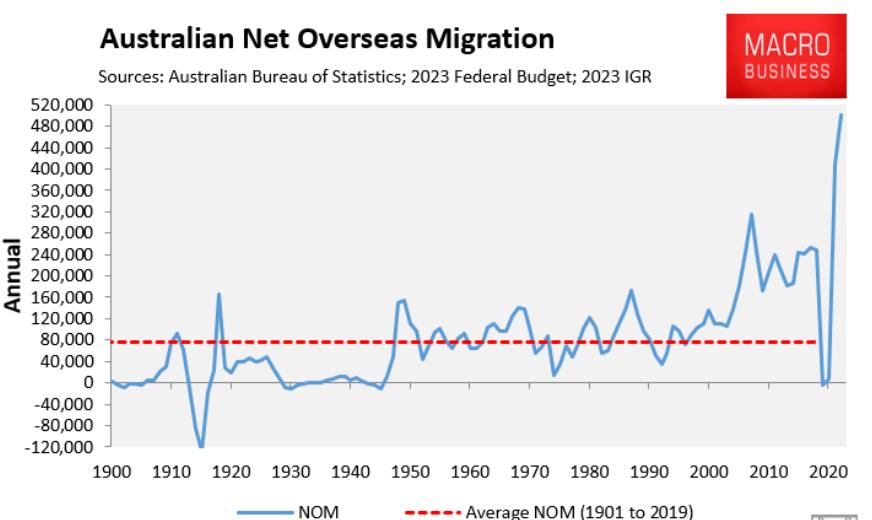
Same student issues:
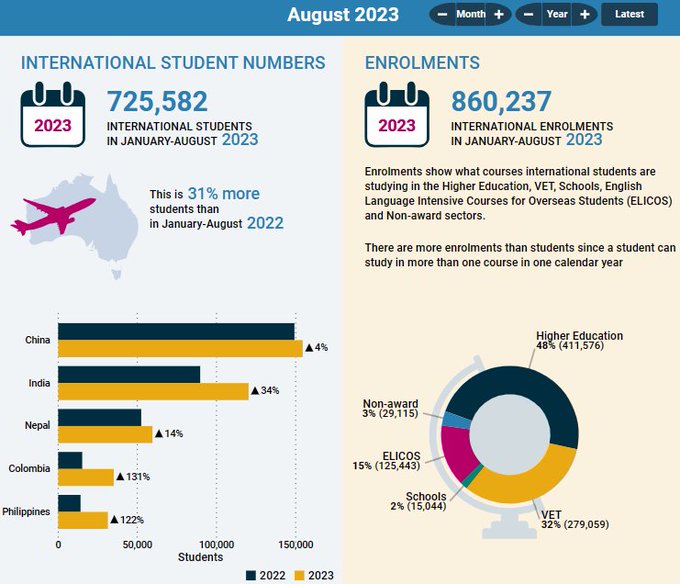
And yeah, same effect on the housing market, though it’s in a better place than Canada, which has probably the world’s worst housing bubble.
So then, Britain:
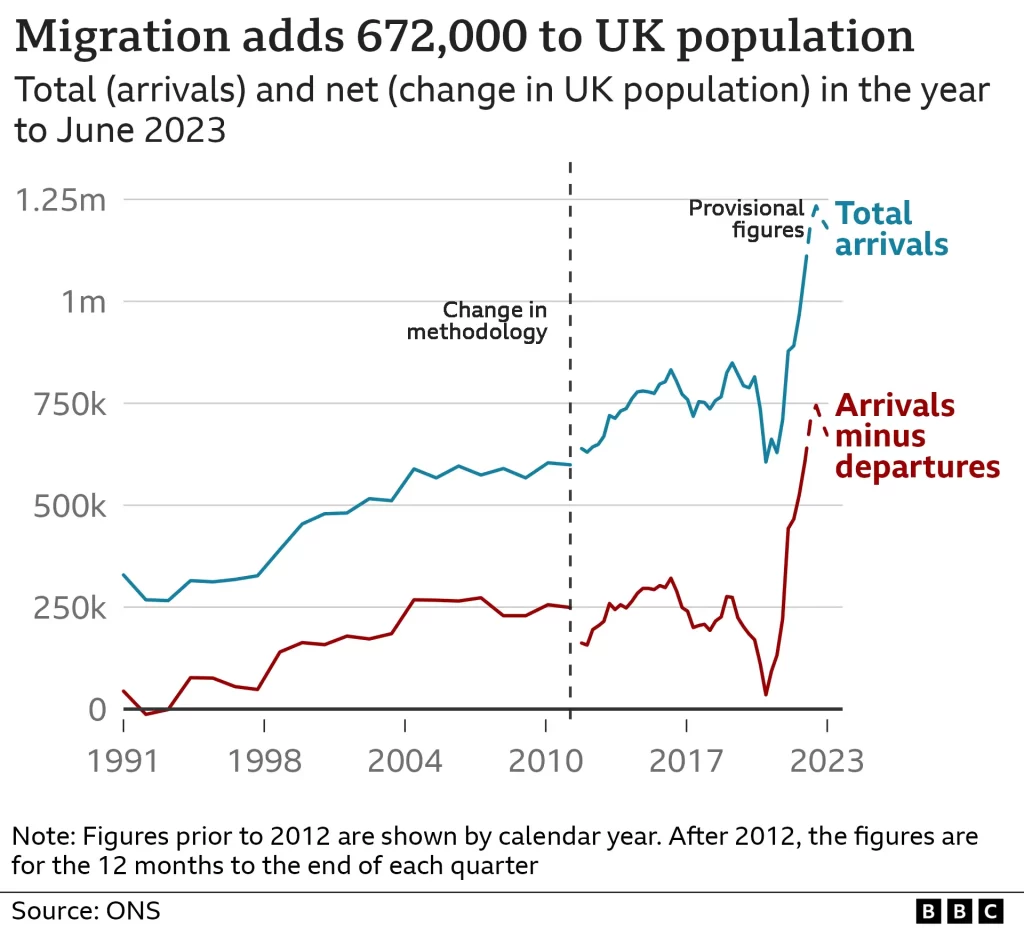
And, though it hasn’t had the same effect on housing in the US:
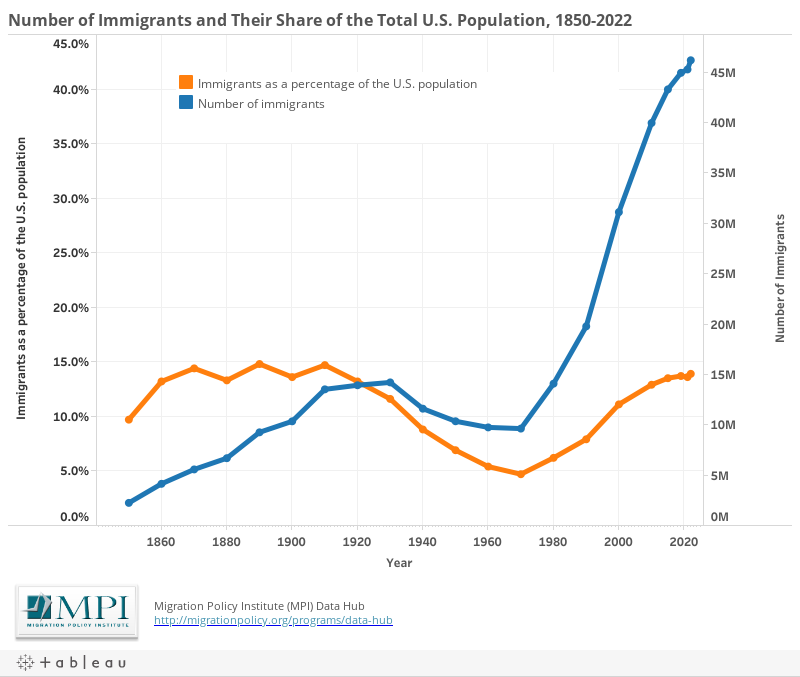
The difference in the US, which probably leaps out, is that it’s just a trend not a spike. it isn’t a clear deliberate policy choice, despite the squeals of Republicans. But it contributes to some of the same problems:
According to a Jan. 25 report from Harvard’s Joint Center for Housing Studies, roughly 653,000 people reported experiencing homelessness in January of 2023, up roughly 12% from the same time a year prior and 48% from 2015. That marks the largest single-year increase in the country’s unhoused population on record, Harvard researchers said…
…That alarming jump in people struggling to keep a roof over their head came amid blistering inflation in 2021 and 2022 and as surging rental prices across the U.S. outpaced worker wage gains.
Now there’s nothing wrong with immigrants, per se and no one who isn’t a native has any leg to stand on when screaming about immigrants to North America, Australia or New Zealand as intrinsically bad.
But when you have a homeless crisis and very tight and expensive rental and housing markets, obviously bringing in lots of new people is going to hurt the people who are already there who aren’t real-estate speculators and so on, and it’s obviously going to hit the poor, the working class and the middle class where it hurts, both on rent, housing prices and wages.
That means you’re going to increase racism, because people who can’t get an affordable place (and I can tell you that in Toronto, say, every low-end place has multiple applicants, and what is low end costs hundreds of dollars more than it did a few years ago) start blaming immigrants instead of hating their own ruling class, which is where the real blame belongs.
If you want racism, increase immigration without increasing housing. And that’s what Canada, the UK and Australia are doing.
And, of course, massive immigration’s primary purpose is to hold down wages, and you can’t expect people to be happy about making less than they would have otherwise. People know, because they see how many people apply for jobs they apply for, they hear stories from their friends, and when immigrants are from visible groups, they can see it and hear it in the accents.
When all boats are rising, only true bigots mind immigration. But when people are struggling to find good jobs and a place to live, spiking immigration is an evil act.
Politically, its a hard place. In Canada, for example, immigration is up under the Liberal party. The Conservatives talk about cutting it back but look at that UK chart: that’s under a Conservative government. Will Canada be any different?
This is a ruling class issue: they aren’t hurt by a rising housing market and the more potential workers there are, the lower wages they have to pay. Older folks who own houses win, as housing prices go up. Immigration is good for elites and people who made it into asset markets. It’s good for insiders, that is, and bad for anyone out in the cold.
Since the people with power are insulated from the pain their decisions cause, my guess is that these policies will continue until there’s enough pain inflicted on elites to change their calculus.
A few riots where the mansions are might help with that, but Brits, Australians and Canadians aren’t the type.
Yet
You get what you support. If you like my writing, please SUBSCRIBE OR DONATE

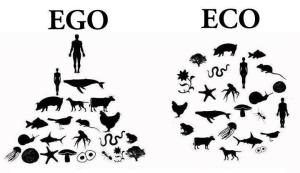 I’ve thought a lot about immigration in my time, and confess, I’ve never thought very highly of it. Which, of late, seems to be an extremely unpopular position among liberals. But it’s not that I’m anti-immigrant, per se. It’s that I’m militantly pro-place. I sympathize with my place.
I’ve thought a lot about immigration in my time, and confess, I’ve never thought very highly of it. Which, of late, seems to be an extremely unpopular position among liberals. But it’s not that I’m anti-immigrant, per se. It’s that I’m militantly pro-place. I sympathize with my place.